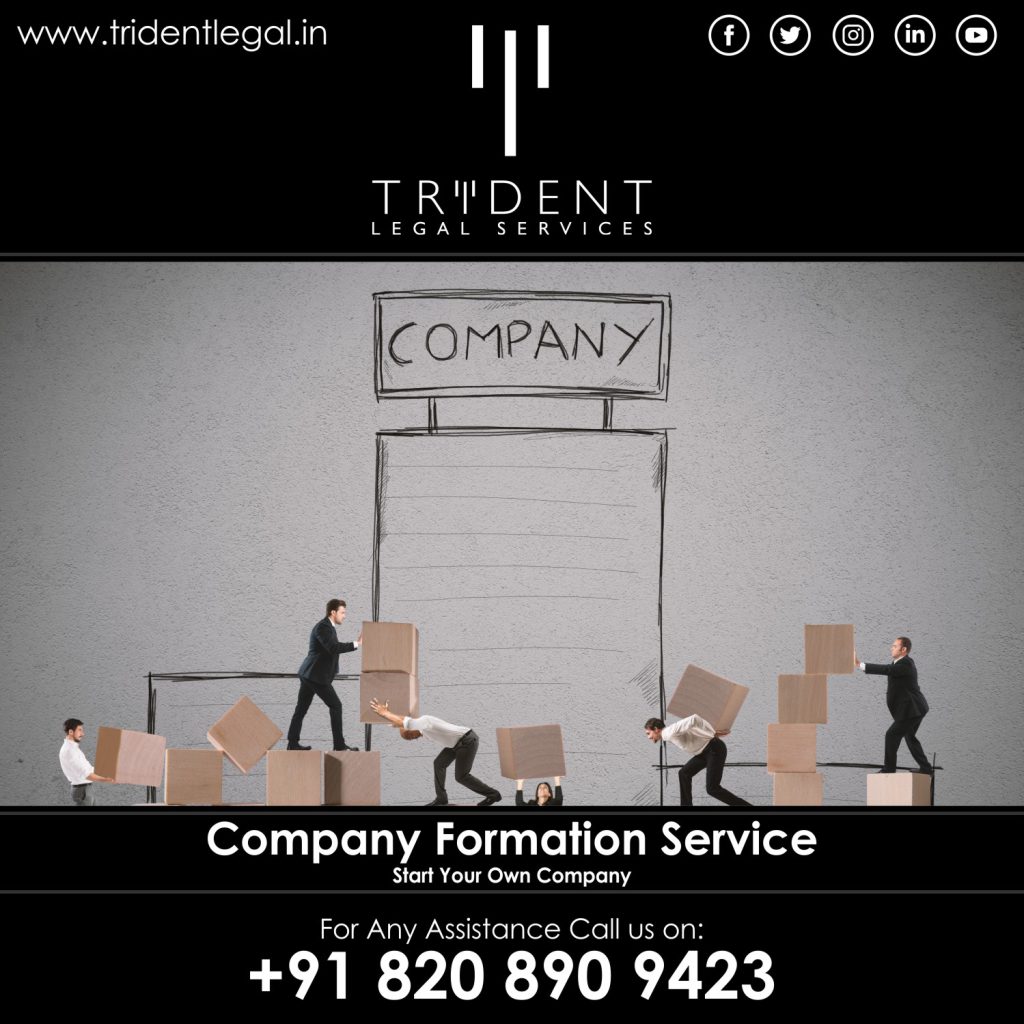Employment Discrimination Lawyer in Pune
- Guranted Expert Guidance
- Client-Centered Approach
+91 820 890 9423
desk@tridentlegal.in
Flat No. 302, Kalunkhe Niwas, Khopade Nagar, Gujaewadi, Katraj, Pune - 411041
Employment Discrimination Lawyer in Pune
- 1 Employment Discrimination Lawyer in Pune
- 2 Advocate Nikhil Rathod: Your Trusted Partner:
- 3 A Holistic Approach to Employment Discrimination:
- 4 A Promise of Excellence:
- 5 Advocate Nikhil Rathod: Your Employment Discrimination Lawyer in Pune:
- 6 How to Choose the Best Employment Discrimination Lawyer in Pune:
- 7 Understanding Employment Discrimination:
- 8 Punishment for Sexual Harassment at the Workplace:
- 9 Punishment for Employment Discrimination:
- 10 Deciphering Discrimination at Work:
- 11 Latest News on Employment Discrimination Law:
- 12 Amendments to Employment Discrimination Law:
- 13 Role of an Employment Discrimination Lawyer:
- 14 The Significance of Employment Discrimination Law:
- 15 Why Choose Trident Legal:
- 16 Services We Provide:
- 17 Conclusion
- 18 COMMON QUESTION FOR EMPLOYMENT DISCRIMINATION LAWYER IN PUNE
- 19 WHAT PEOPLE SAYS ABOUT US?
- 20 Read our latest News insights
Welcome to Trident Legal, the pinnacle of legal excellence in Pune, dedicated to addressing the critical issues of employment discrimination. Founded and led by the esteemed Advocate Nikhil Rathod, Trident Legal emerges as a hope for individuals navigating the intricate labyrinth of workplace discrimination. If you are searching for an Employment Discrimination Lawyer in Pune who embodies unwavering commitment and unparalleled expertise, you’ve arrived at your destination.
In today’s world, where workplace dynamics are constantly evolving, the significance of fair treatment cannot be overstated. Employment discrimination remains a pervasive challenge, affecting individuals across diverse backgrounds and identities. Within this complex context, Trident Legal and Advocate Nikhil Rathod stand ready to provide their guidance and legal acumen.
Advocate Nikhil Rathod: Your Trusted Partner:
Advocate Nikhil Rathod’s journey is paved with dedication, passion, and a relentless pursuit of justice. As the sole practitioner at Trident Legal, Advocate Nikhil is not just a lawyer but a champion for the rights of those who have faced unjust treatment in their professional lives. His expertise in employment discrimination law has garnered him a reputation that resonates within the legal fraternity and amongst those he has represented.
With a deep-seated belief in the power of justice to transform lives, Advocate Nikhil Rathod has undertaken a mission to dismantle the barriers of discrimination within workplaces across Pune. His unique combination of legal prowess and a compassionate approach has enabled him to secure justice for numerous individuals who have suffered the indignity of workplace discrimination.
A Holistic Approach to Employment Discrimination:
At Trident Legal, we understand that employment discrimination transcends legal complexities; it’s an emotional and personal ordeal for those affected. This understanding drives our approach, combining legal rigor with empathy. The path to justice should address legal wrongs and empower individuals to reclaim their dignity and professional standing.
Our commitment is reflected in our legal strategies and the trust we build with our clients. Advocate Nikhil Rathod’s personalized attention ensures that each case is approached with sensitivity, understanding, and an unwavering resolve to secure justice.
A Promise of Excellence:
Choosing an Employment Discrimination Lawyer in Pune is a pivotal decision that can profoundly impact the trajectory of your case and your life. At Trident Legal, we recognize the weight of this decision and vow to provide nothing short of excellence. Advocate Nikhil Rathod’s comprehensive grasp of employment discrimination law and his determination to create a more equitable professional landscape makes him the quintessential choice for your legal representation.
Advocate Nikhil Rathod: Your Employment Discrimination Lawyer in Pune:
With an unwavering passion for justice and a wealth of experience, Advocate Nikhil Rathod is the driving force behind Trident Legal. As the sole lawyer at the firm, Advocate Nikhil brings an astute understanding of employment discrimination law. His deep-rooted commitment to ensuring a fair and just workplace for all has earned him a reputation as a leading Employment Discrimination Lawyer in Pune.
How to Choose the Best Employment Discrimination Lawyer in Pune:
Choosing the right legal representation is crucial, especially in employment discrimination cases. Look for a lawyer with a strong track record, extensive knowledge of employment law, and a genuine concern for your well-being. Advocate Nikhil Rathod’s comprehensive understanding of employment discrimination nuances and his empathetic approach make him the ideal choice to champion your cause.
Understanding Employment Discrimination:
Employment discrimination is the unfair treatment of an employee or applicant for employment based on their race, color, religion, sex, national origin, age, disability, or another protected characteristic. It can take many forms, including:
- Hiring: An employer may refuse to hire someone because of their race, color, religion, sex, national origin, age, disability, or other protected characteristic.
- Firing: An employer may fire someone because of their race, color, religion, sex, national origin, age, disability, or another protected characteristic.
- Pay: An employer may pay someone less than another employee for the same work because of their race, color, religion, sex, national origin, age, disability, or another protected characteristic.
- Promotions: An employer may deny someone a promotion because of their race, color, religion, sex, national origin, age, disability, or another protected characteristic.
- Training: An employer may deny someone training opportunities because of their race, color, religion, sex, national origin, age, disability, or another protected characteristic.
- Benefits: An employer may deny someone benefits, such as health insurance or paid leave, because of their race, color, religion, sex, national origin, age, disability, or another protected characteristic.
Employment discrimination is illegal under federal and state law. If you believe you have been discriminated against, you should speak to an employment lawyer to discuss your options.
Here are some of the protected characteristics under employment discrimination laws:
- Race: This includes discrimination based on skin color, hair texture, and other physical characteristics associated with race.
- Colour: This includes discrimination based on skin color, regardless of race.
- Religion includes discrimination based on an employee’s religious beliefs or practices.
- Sex: This includes discrimination based on an employee’s sex, including pregnancy, gender identity, and sexual orientation.
- National origin includes discrimination based on an employee’s country of origin, ancestry, or language.
- Age: This includes discrimination against employees who are 40 years of age or older.
- Disability: This includes discrimination against employees with a disability, including physical and mental disabilities.
It is important to note that not all discrimination is illegal. For example, an employer may legally refuse to hire someone who is not a U.S. citizen, and an employer may legally fire someone for violating the company’s policies, even if the policy is discriminatory.
If you believe you have been discriminated against in the workplace, it is important to document the discrimination. This includes keeping a record of dates, times, and events you believe are discriminatory. It would help to speak to a lawyer to discuss your options.
Employment discrimination can have a significant impact on an employee’s life. It can lead to financial hardship, emotional distress, and loss of employment. If you believe you have been discriminated against in the workplace, it is important to seek legal help.
Employment discrimination is the unjust treatment of individuals based on gender, race, age, religion, disability, or sexual orientation in a workplace setting. Discrimination can take various forms, including unequal pay, harassment, wrongful termination, and retaliation. Advocate Nikhil Rathod specializes in addressing these matters, ensuring justice is served.
Punishment for Sexual Harassment at the Workplace:
The Indian Penal Code (IPC) does not have a specific provision for sexual harassment in the workplace. However, several provisions can be used to prosecute sexual harassment in the workplace, including:
- Section 354: This section criminalizes assault or criminal force to a woman with intent to outrage her modesty. This section can be used to prosecute sexual harassment that involves physical contact, such as groping or touching.
- Section 354A: This section criminalizes stalking. This section can be used to prosecute sexual harassment that involves following, contacting, or communicating with a woman to cause her fear or annoyance.
- Section 509: This section criminalizes word, gesture, or act intended to insult the modesty of a woman. This section can be used to prosecute sexual harassment that involves verbal or non-verbal conduct, such as making sexually suggestive comments or gestures.
In addition to the IPC, several other laws can be used to prosecute sexual harassment in the workplace, including:
- The Sexual Harassment of Women at Workplace (Prevention, Prohibition and Redressal) Act, 2013: This Act specifically prohibits sexual harassment. The Act sets out several measures to prevent sexual harassment, including establishing Internal Complaints Committees (ICCs) in all workplaces with 10 or more employees. The Act also provides for several remedies for victims of sexual harassment, including compensation and reinstatement.
- The Code of Criminal Procedure, 1973: This Code provides for several procedural safeguards for victims of sexual harassment, such as the right to privacy and the right to be protected from further harassment.
- The Evidence Act, 1872: This Act sets out the rules of evidence that apply to sexual harassment cases. The Act provides several special provisions for victims of sexual harassment, such as the presumption that a woman who has made a complaint of sexual harassment is telling the truth.
The punishment for sexual harassment in the workplace depends on the violated provision. However, the maximum punishment for sexual harassment under the IPC is 5 years imprisonment and a fine. The punishment for sexual harassment under the Sexual Harassment of Women at Workplace (Prevention, Prohibition, and Redressal) Act, 2013, is up to 5 years imprisonment and a fine.
Punishment for Employment Discrimination:
The Indian Penal Code (IPC) does not mention employment discrimination as an offense. However, several provisions in the IPC can be used to prosecute employers who discriminate against employees based on race, caste, religion, sex, place of birth, or any other prohibited ground.
- For example, Section 153A of the IPC prohibits the promotion of enmity between different groups based on religion, race, place of birth, residence, language, caste, or community. It acts prejudicial to the maintenance of harmony. This section can be used to prosecute employers who discriminate against employees based on their religion, caste, or any other prohibited ground.
- Section 503 of the IPC prohibits criminal intimidation, defined as threatening to cause death or harm to a person or their property. This section can be used to prosecute employers who threaten to fire or otherwise harm employees if they do not comply with discriminatory practices.
- Section 506 of the IPC prohibits criminal intimidation by an anonymous communication, defined as sending a letter or other communication that threatens to cause death or harm to a person or their property and does not identify the sender. This section can be used to prosecute employers who send anonymous letters or emails to employees threatening them with harm if they do not comply with discriminatory practices.
- In addition to the IPC, several other laws can be used to prosecute employers who discriminate against employees. For example, the Equal Remuneration Act of 1976 prohibits discrimination between men and women in pay matters. The Maternity Benefit Act of 1961 prohibits discrimination against pregnant women in matters of employment. And the Sexual Harassment of Women at Workplace (Prevention, Prohibition and Redressal) Act, 2013 prohibits sexual harassment of women in the workplace.
Deciphering Discrimination at Work:
Discrimination at work encompasses a broad spectrum of unfair treatment, from denial of opportunities to hostile work environments. Advocate Nikhil Rathod possesses a deep understanding of the intricacies of such cases, enabling him to navigate the complexities and offer tailored legal strategies to secure justice.
Latest News on Employment Discrimination Law:
- The Supreme Court of India has upheld the constitutional validity of the Sexual Harassment of Women at Workplace (Prevention, Prohibition and Redressal) Act, 2013. The court ruled that the Act is valid and does not violate any fundamental rights of employers or employees.
- The National Commission for Women (NCW) has issued guidelines for preventing sexual harassment in the workplace. The guidelines provide detailed information on what constitutes sexual harassment, how to report it, and what remedies are available to victims.
- The Ministry of Labour and Employment has issued a notification amending the Equal Remuneration Act of 1976. The amendment increases the penalties for employers who discriminate between men and women in pay matters.
- The Supreme Court of India has directed the Central government to take steps to prevent discrimination against transgender persons in the workplace. The court noted that transgender persons are often discriminated against in hiring, firing, and pay.
Staying abreast of developments in employment discrimination law is vital. Advocate Nikhil Rathod remains updated with the latest legal trends and precedents, enabling him to offer cutting-edge advice and representation. Rest assured that Trident Legal is well-versed in the evolving landscape of employment discrimination law.
Amendments to Employment Discrimination Law:
- The Sexual Harassment of Women at Workplace (Prevention, Prohibition and Redressal) Amendment Act, 2013 expanded the definition of sexual harassment to include “any unwelcome act or behavior of sexual nature” that can “affect the work environment of a woman.” The amendment also created a new mechanism for reporting and investigating sexual harassment complaints.
- The Equal Remuneration (Amendment) Act of 2017 increased the penalties for employers who discriminate between men and women in pay matters. The amendment also made it mandatory for employers to prepare a written statement of the pay of all employees, disaggregated by gender.
- The Rights of Persons with Disabilities (RPWD) Act 2016 prohibits discrimination against persons with disabilities in all spheres of life, including employment. The Act also requires employers to provide reasonable accommodation to persons with disabilities.
- The Maternity Benefit (Amendment) Act of 2017 extended paid maternity leave from 12 to 26 weeks. The amendment also made it mandatory for employers to provide crèche facilities to employees with children under six.
Role of an Employment Discrimination Lawyer:
An Employment Discrimination Lawyer plays a pivotal role in advocating for individuals who have experienced unjust treatment in the workplace. Advocate Nikhil Rathod leverages his expertise to provide strategic legal guidance, negotiate settlements, and represent clients in court if necessary.
The Significance of Employment Discrimination Law:
Employment discrimination law safeguards against injustice, fostering a work environment where diversity is celebrated, and every employee is treated fairly. Advocate Nikhil Rathod believes in the transformative power of this law to shape a more equitable society.
Why Choose Trident Legal:
Trident Legal’s singular focus on employment discrimination law, embodied by Advocate Nikhil Rathod’s expertise, makes it the optimal choice for your legal needs. As a leading Employment Discrimination Lawyer in Pune, Advocate Nikhil ensures that your rights are protected, and justice prevails.
Services We Provide:
Conclusion
COMMON QUESTION FOR EMPLOYMENT DISCRIMINATION LAWYER IN PUNE
What is an employment discrimination lawyer?
An employment discrimination lawyer is a legal professional specializing in representing individuals who have experienced discrimination in the workplace. They focus on cases involving unfair treatment based on factors such as race, gender, age, disability, religion, and more.
When should I consider hiring an employment discrimination lawyer?
You should consider hiring an employment discrimination lawyer if you believe you have been subjected to unfair treatment or harassment in the workplace based on a protected characteristic. If you've experienced demotion, termination, denial of promotion, or hostile work environment due to discrimination, consulting a lawyer is advisable.
What laws protect employees from workplace discrimination?
Several laws in the United States protect employees from workplace discrimination, including Title VII of the Civil Rights Act, the Age Discrimination in Employment Act (ADEA), the Americans with Disabilities Act (ADA), and the Equal Pay Act, among others. State laws and local ordinances may provide additional protections.
How can an employment discrimination lawyer help me?
An employment discrimination lawyer can help you by assessing the strength of your case, gathering evidence, negotiating with your employer or their legal team, and representing you in court if necessary. They can guide you through the legal process, ensuring your rights are protected and seeking compensation for damages.
What do I need to prove in an employment discrimination case?
To prove an employment discrimination case, you generally need to demonstrate that you belong to a protected class, that you suffered adverse employment actions, that there is evidence of a discriminatory motive, and that there is a causal link between the discrimination and the adverse actions taken against you.
How do I choose the right employment discrimination lawyer for my case?
When choosing a lawyer, consider their experience, specialization in employment law, track record of success, and their approach to communication. It's essential to have a lawyer you feel comfortable with and who can effectively advocate for your interests.
Can I afford an employment discrimination lawyer?
Many employment discrimination lawyers offer a free initial consultation to assess your case. Some may work on a contingency basis, meaning they only get paid if you win your case. Others might charge an hourly rate or a flat fee. Discuss payment options during the initial consultation.
What steps are involved in an employment discrimination lawsuit?
The steps can vary, but generally, they involve:
Consultation and case assessment
Filing a complaint with the appropriate agency (EEOC or state agency)
Attempting mediation or settlement negotiations
Filing a lawsuit if settlement is not achieved
Discovery phase (evidence gathering)
Pre-trial motions and hearings
Trial (if the case goes to court)
Appeals (if applicable)
Can I file an employment discrimination claim without a lawyer?
Yes, you can file a claim with the Equal Employment Opportunity Commission (EEOC) without a lawyer. However, having a lawyer can significantly improve your chances of a successful outcome, as they understand the intricacies of the law and can navigate the process more effectively.
What compensation can I receive in a successful employment discrimination case?
If your case is successful, you may receive compensation such as back pay, front pay, reinstatement, promotion, compensatory damages (for emotional distress), punitive damages (in cases of willful discrimination), and attorney's fees. The specific compensation will depend on the details of your case and the remedies available under the law.
WHAT PEOPLE SAYS ABOUT US?
I was really impressed with Trident Legal and Advocate Nikhil Rathod. Even though they just started,
Deepak Joshi
Trident Legal and Advocate Nikhil Rathod are really good at what they do. Even though they
Arjun Mehta
I had a great experience with Trident Legal and Advocate Nikhil Rathod. Even though they are
Preeti Mishra
Trident Legal, with Advocate Nikhil Rathod, is like a rising star in the legal world. I
Ritu Singh
I was lucky to work with Trident Legal and Advocate Nikhil Rathod. Even though they just
Prakash Gupta
Trident Legal and Advocate Nikhil Rathod are really amazing! They helped me with legal stuff and
Meera Patel
Trident Legal and Advocate Nikhil Rathod are like superheroes! They are really good at legal stuff
Rohit Verma
I wasn’t sure about Trident Legal because they are new, but they surprised me! Advocate Nikhil
Anjali Sharma
I had the honor of working with Trident Legal and Advocate Nikhil Rathod. They were really
Rakesh Kumar
Rakesh KumarTrident Legal, led by Advocate Nikhil Rathod, is like a superhero in the legal world. Even
Nisha Gupta









